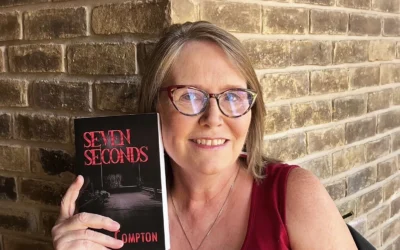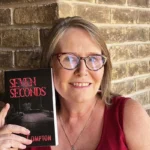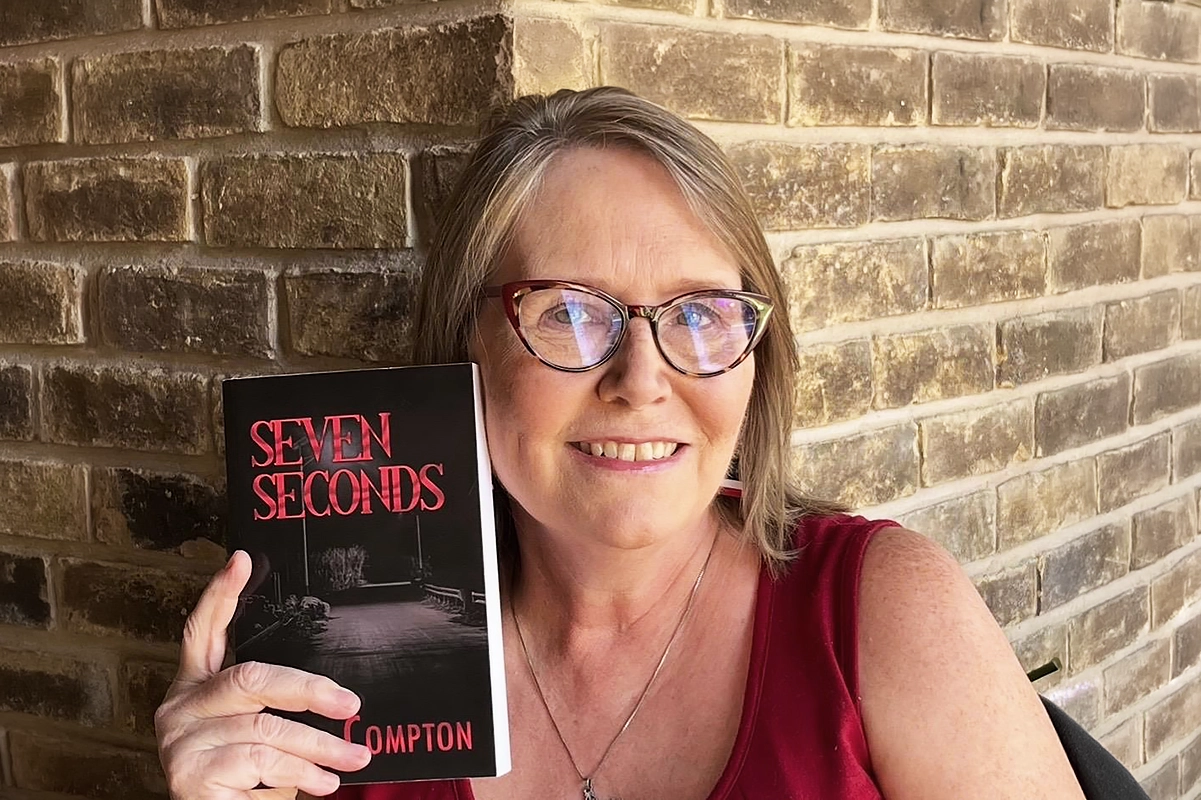Donna Taylor Turns Grief Into Grace With Her Memoir Show Me Heaven

PHOTO: Author Donna Taylor, whose heartfelt memoir Show Me Heaven honors love, loss, and the power of survival through storytelling.
A Powerful Journey Through Loss, Mental Health, and Unshakable Resilience
Author Donna Taylor opens up about writing her memoir Show Me Heaven, sharing deeply personal experiences of grief, mental illness, and healing through storytelling, while giving voice to untold global tragedies.
Donna Taylor’s courage on the page is matched only by her compassion in life. As both a financial adviser and a psychiatric hospital employee, she brings rare insight into the emotional and practical struggles many people face—but it is through her writing that she bares her soul most powerfully. In her deeply moving memoir Show Me Heaven, Donna shares an unflinching account of loss, love, and resilience. Born from the grief of losing her beloved brother Mark, the book serves as a luminous tribute to their bond and an honest reflection on mental illness, trauma, and healing.
Donna’s gift lies in her ability to write about pain with clarity and grace. Her experiences with homelessness, addiction, and bipolar disorder aren’t presented for shock value—they are woven into a larger narrative about hope, remembrance, and human strength. In every chapter, she reminds readers that the darkest moments can lead to profound transformation. Her second work, Right of Return, expands this emotional landscape even further by confronting the devastation of war through the lens of personal loss, further proving her commitment to telling the stories that matter—especially those that often go unheard.
Donna Taylor is not only an author; she is a witness, a guide, and an advocate. Her writing speaks to anyone who has faced grief or battled their own mind, and she emerges as a powerful voice in contemporary nonfiction. It is our honor to feature her on Novelist Post, where her words are sure to resonate deeply with every reader who believes in the healing power of storytelling.
Donna Taylor writes with fearless honesty and emotional depth, transforming personal tragedy into powerful narratives that inspire, heal, and connect readers.
What inspired you to share such deeply personal experiences in Show Me Heaven?
The death of my brother, Mark, was the turning point for me. I felt a powerful urge to preserve his memory—and the story of our bond—before time or age faded the details. Writing this memoir was a way to ensure that our story lives on, not only for those who knew us but also for future readers who might find resonance in our experience. Books have a remarkable way of outliving us; they hold pieces of our souls long after we’re gone. That thought brought me comfort and gave me purpose.
How did writing your memoir help you process the grief of losing your brother Mark?
Writing about Mark felt like an act of love and remembrance. Each page was a way of keeping his memory vivid, of refusing to let grief silence the beautiful moments we shared. When you write about someone you’ve lost, you’re actively choosing to keep them alive in your daily life. The process was emotional, yes—but also cathartic. It allowed me to talk to him again, in a way, and revisit the times that defined us.
“Books have a remarkable way of outliving us; they hold pieces of our souls long after we’re gone.” — Donna Taylor
What was the most emotionally challenging part of writing Show Me Heaven?
The hardest part was revisiting the time when my sense of reality was profoundly shaken. After losing Mark and my mother, I didn’t just grieve—I questioned everything I thought I knew about life, death, and meaning. Writing through that lens was emotionally taxing because I had to confront those moments when I felt utterly defeated and vulnerable. Putting that on the page was both painful and healing.
Can you describe how your experience as a psychiatric hospital employee influences your writing?
Working in a psychiatric hospital gave me a dual perspective that most people never encounter. I witnessed both the clinical and deeply human sides of mental illness, moments of profound struggle, resilience, and transformation. That experience has shaped the way I tell stories. It gave me a deeper empathy and understanding for the complexities of the human mind, which I try to bring to every character and narrative I write.
How do you balance your role as a financial advisor with your advocacy for mental health awareness?
On the surface, financial advising and mental health advocacy may seem worlds apart, but they actually share a common thread: both are about helping people build a secure future. In financial planning, I guide individuals through decisions that impact their long-term wellbeing. In mental health advocacy, the focus is on emotional and psychological stability. In both roles, I support people as they navigate uncertainty and plan for a better tomorrow.
“Right of Return was born out of that shared grief and the desire to give voice to stories that often go unheard.” — Donna Taylor
What role did music and travel play in your healing and recovery journey?
Music has always been a powerful emotional outlet for me, it’s a direct line to memory and feeling. Certain songs can transport me to moments I’ve shared with Mark, offering both comfort and release. Travel, on the other hand, gave me the physical and emotional space to reflect and rebuild. Exploring new places offered fresh perspectives, a sense of renewal, and often, unexpected clarity. Both music and travel became forms of therapy in their own right.
In what ways have readers responded to Show Me Heaven, and were there any reactions that surprised you?
That’s a great question. I’ve heard from people who found the book deeply moving, who saw their own grief mirrored in my story. But every reader brings their own experiences to the page, so the reactions have been varied and often deeply personal. It’s humbling to see how a story rooted in my own loss can open up conversations for others about theirs.
What drew you to write Right of Return, a story centered on the Palestinian experience?
This story is profoundly personal. My husband lost 21 members of his family when a bomb was dropped on a refugee camp in Northern Gaza in October 2023. Bearing witness to that kind of loss, not just as a partner but as an author, compelled me to explore it more deeply. Right of Return was born out of that shared grief and the desire to give voice to stories that often go unheard.
“Be gentle with yourself… your story matters, and it will find the people who need it most.” — Donna Taylor
How do you approach writing about trauma in a way that feels honest but not overwhelming to the reader?
When working on my books, my intention is always to create something brimming with honesty and compassion. I try to strike a balance between emotional depth and narrative clarity, being truthful without retraumatising either myself or the reader. It’s a delicate process, and I’m constantly learning where that line is.
What advice would you give to aspiring authors who want to write about their own difficult life experiences?
From my perspective: be gentle with yourself. Writing about pain isn’t easy, but it can be transformative. Start with the truth. Write what you need to say, not what you think others want to hear. And know that even if it feels like you’re writing into a void, your story matters, and it will find the people who need it most.













